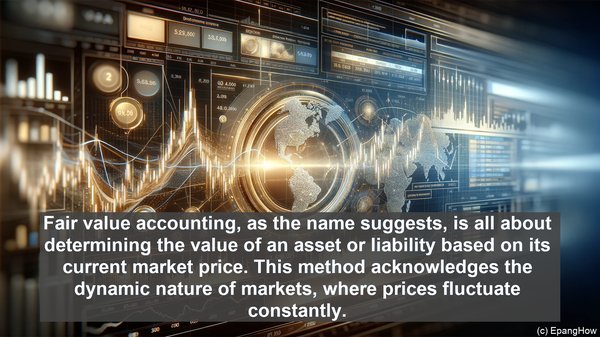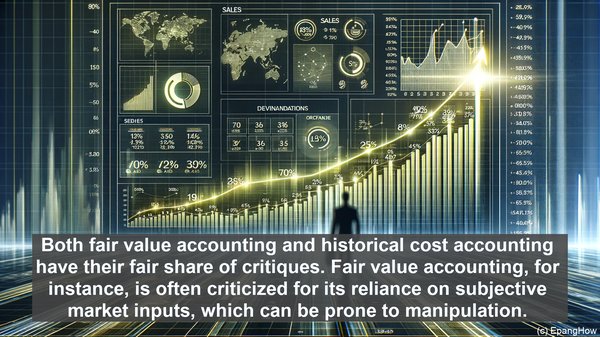Introduction: The Significance of Accounting Methods
Hello everyone, and welcome to our article on the difference between fair value accounting and historical cost accounting. Accounting methods are not just technicalities; they shape the financial landscape, influencing decisions, and providing insights into an organization’s financial health. Today, we’ll explore two such methods: fair value accounting and historical cost accounting. Let’s dive in!

Fair Value Accounting: Embracing Market Dynamics
Fair value accounting, as the name suggests, is all about determining the value of an asset or liability based on its current market price. This method acknowledges the dynamic nature of markets, where prices fluctuate constantly. By valuing assets at their fair market value, organizations can reflect the current economic reality in their financial statements. Fair value accounting is particularly relevant for assets like stocks, bonds, and real estate, where market prices are readily available.
Historical Cost Accounting: Anchoring in the Past
In contrast to fair value accounting, historical cost accounting relies on the original cost of an asset or liability. Under this method, the value of an asset remains unchanged unless there are specific events like impairment or depreciation. Historical cost accounting is often considered more conservative, as it provides a stable and reliable measure of an asset’s value. It is commonly used for assets like machinery, equipment, and land, where market prices may not accurately reflect their true worth.
The Impact on Financial Reporting
The choice between fair value accounting and historical cost accounting can significantly impact financial reporting. Fair value accounting, with its focus on current market prices, can result in more volatile financial statements. This volatility can be both positive and negative, depending on market conditions. Historical cost accounting, on the other hand, provides a more stable picture of an organization’s financial position. It can be particularly useful during periods of market turbulence when market values may be distorted.

Critiques and Controversies
Both fair value accounting and historical cost accounting have their fair share of critiques. Fair value accounting, for instance, is often criticized for its reliance on subjective market inputs, which can be prone to manipulation. Historical cost accounting, while reliable, may not always reflect an asset’s true economic value. Over the years, there have been debates about finding the right balance between these two methods, with some advocating for a hybrid approach that combines the best of both worlds.
